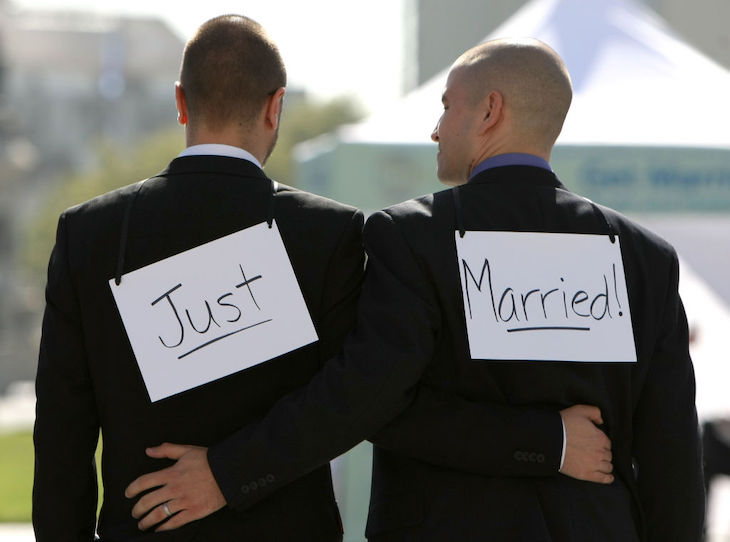The way in which some activists campaign for their cause makes it difficult to believe they really want the rest of us to change what we do or how we think. Trans-right campaigners who seek to silence the likes of the academic Kathleen Stock and stop debate don’t help in enhancing mutual respect and collective understanding. Likewise, attempts to remove Baroness Falkner from her job as head of the Equality and Human Rights Commission don’t help in achieving an equality legal framework that is fair and respectful of all – which is what most reasonable people want. Indeed, it’s hard to understand why many commercial companies and public services have taken sides of hotly contested political campaigns which – as things stand – are unlikely to make significant change that everyone can support.
If we really want to improve our public discourse that might lead to better things, we don’t have to go far back in time to see there is a different way.
It’s ten years this week since the House of Lords started its scrutiny of Same Sex Marriage and – contrary to expectations – voted by a huge majority in favour of the Bill proceeding. Making it possible for gay couples to marry was historic; it secured the recognition and equality many had fought years to achieve. How it happened with widespread public acceptance offers important lessons we clearly need to relearn.
Not everyone agreed that equal marriage would be a good thing
Support for equal marriage started with the introduction of civil partnerships in 2005. They were a big breakthrough, but not just because they afforded the same legal status as marriage. Critically, they helped make the case for opening-up marriage. Civil partnerships showed that gay couples seek the same kind of stability and security as straight couples from a formal union that involves a public declaration of commitment. Why would we want to perpetuate a division between gay and straight couples and undermine our most important social institution, when the evidence showed how marriage could unite us for the greater good of society?
Not everyone agreed that equal marriage would be a good thing. Many were, and some remain, legitimately concerned about a threat to religious doctrines and the freedom of faith (and importantly, it’s perfectly legal for them to say so). Some gay men and women feared they would pay the price for the government unnecessarily ‘rocking the boat’. Some – gay and straight – were suspicious of David Cameron’s motives for proposing the change and thought that equal marriage was a ruse to ‘detoxify’ the Conservative brand. Many of the most strident gay rights campaigners didn’t help their cause, asking why bother trying to persuade ‘bigots’, and not minding much if marriage was consigned to the wrong side of history in the process.
The legal parity of civil partnerships led some to ask: what’s the point in changing marriage law? But the government’s answer was clear: it would make a big difference to people’s lives and future-proof the institution of marriage. In short, all of us would gain.
Before the legislation arrived in the House of Lords, uncertainty was very evident amongst peers. In response, what the ministerial team I led didn’t do, as well as what we did, played a large part in the legislation’s success. We reassured rather than demonised those who were against or unsure whether to support what, at the time, was radical. We worked hard to demonstrate that all the legitimate concerns of those opposed to the Bill on religious grounds had been taken seriously and addressed in the legislation. And we amended the Bill further to provide the clarification and comfort some sought, when it cost us nothing to do so.
Once the Bill passed into law and public acceptance grew swiftly, the lesson from what had been achieved was clear. Successful social change is only possible if it’s beneficial to everyone. The immediate gains might be enjoyed or celebrated only by some when it involves righting a wrong – and that too will be accepted and understood – if what has changed for some was not at others’ unfair expense. The ultimate goal has to be a stronger and more cohesive society. That’s why – if the way we make change happen is done well and everyone feels respected in the pursuit of progress – the result should bring us closer together, not push us further apart.
Instead of using all that we learned to champion mutual respect, we’ve allowed legitimate limits that exist in law to protect sex-based differences to be defined as barriers to equal progress.
Equality in law that accommodates difference is not easy to achieve. Where we got to ten years ago is remarkable and it may well be as far as we ever get. But even if there is scope in the future for us to go further, there will be no shortcut; and it won’t be possible without adopting the kind of approach taken to passing equal marriage law. Which is why – whatever the future may hold – it’s still vital that we don’t give up on all that we learned through succeeding back then.
Equal marriage didn’t happen because of our differences or what divides us, it was one of the best things we’ve ever done to celebrate and uphold all that we share.






Comments